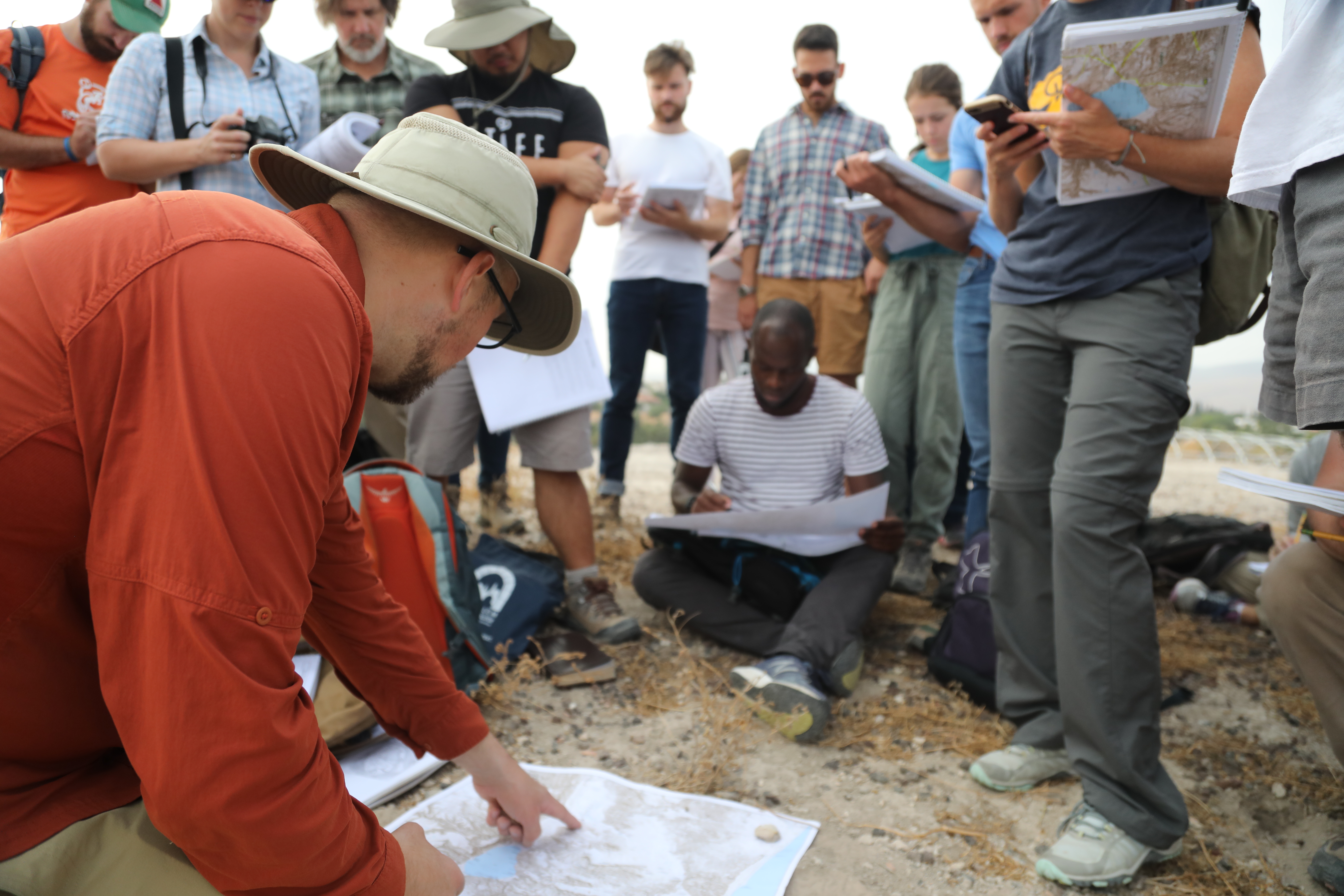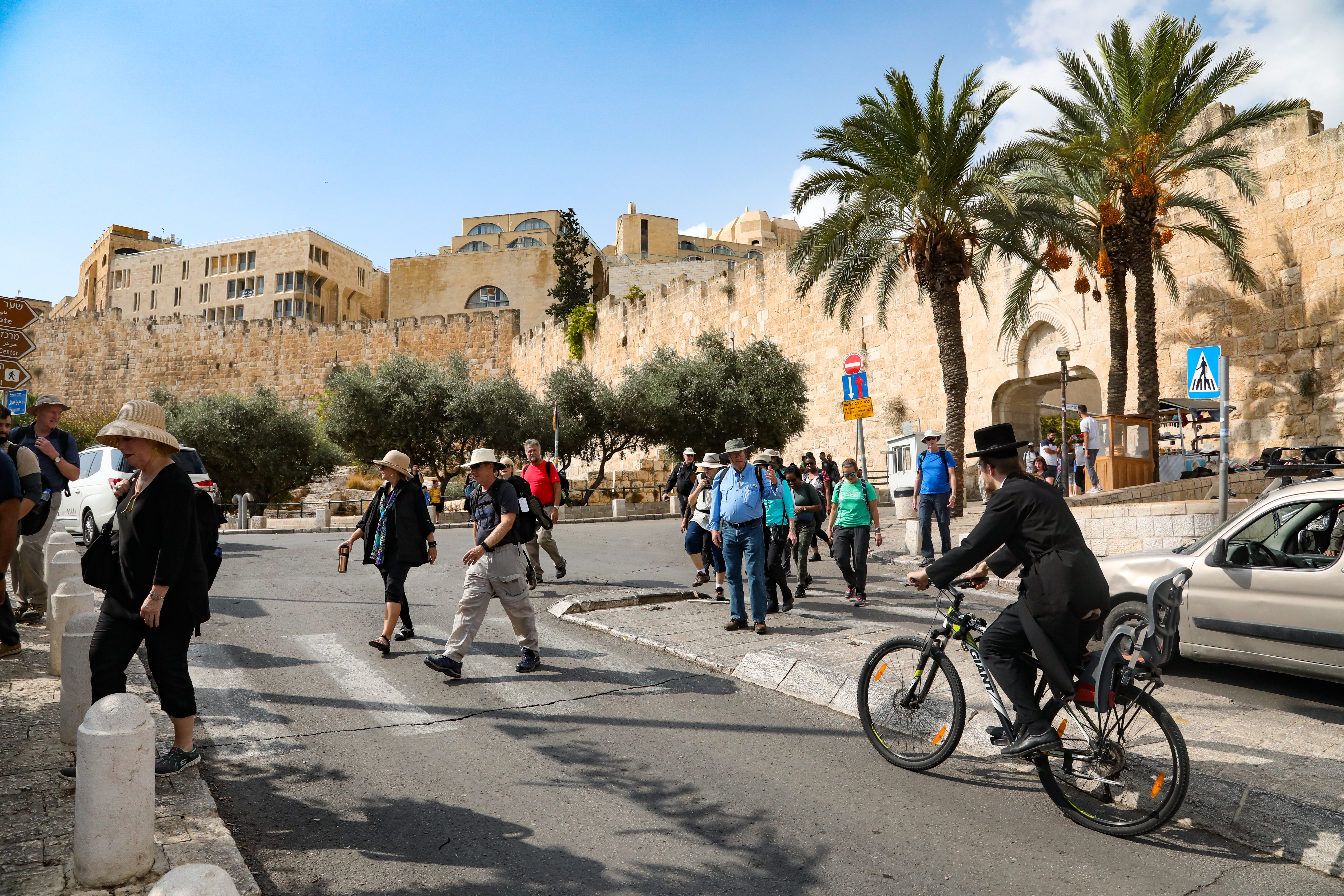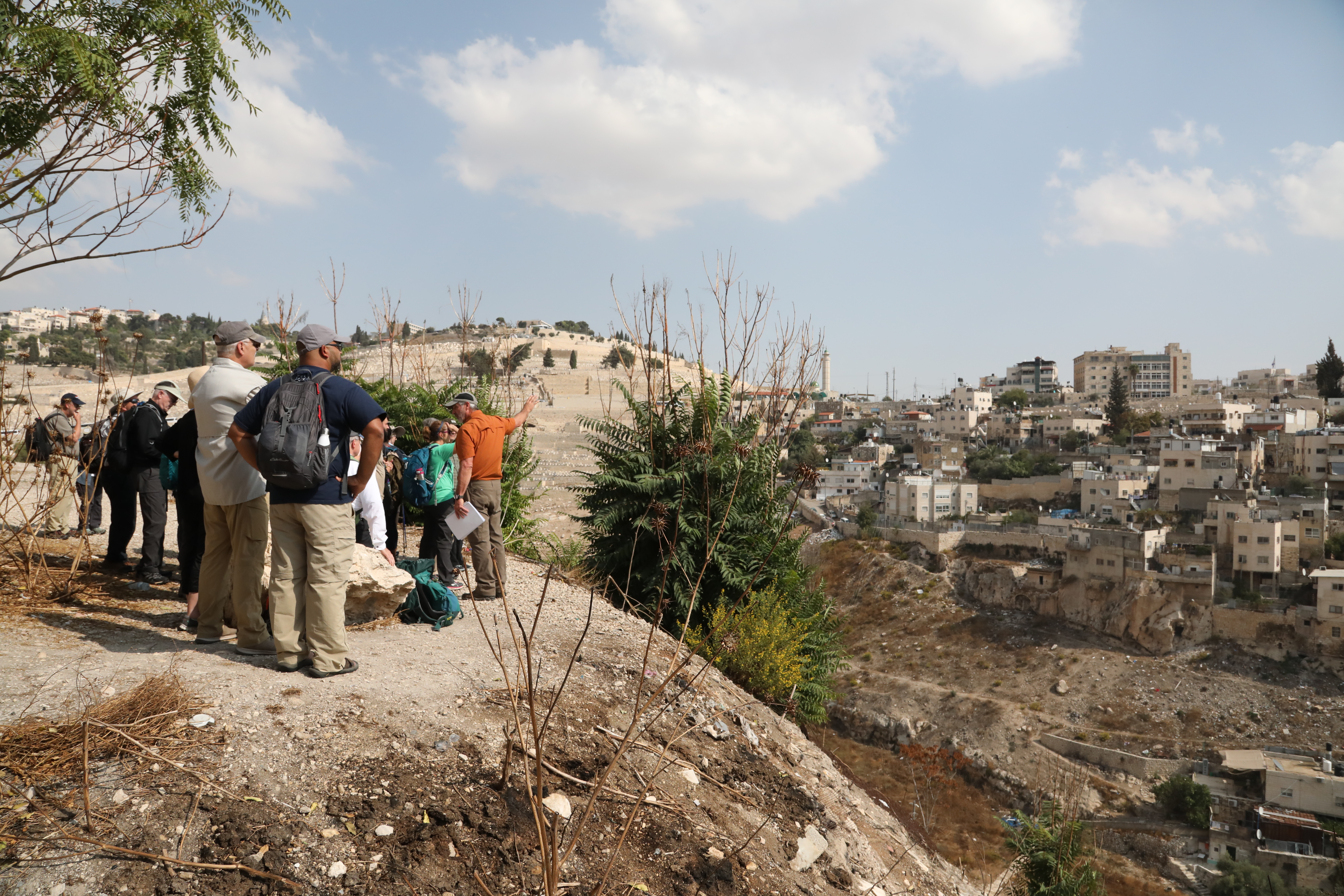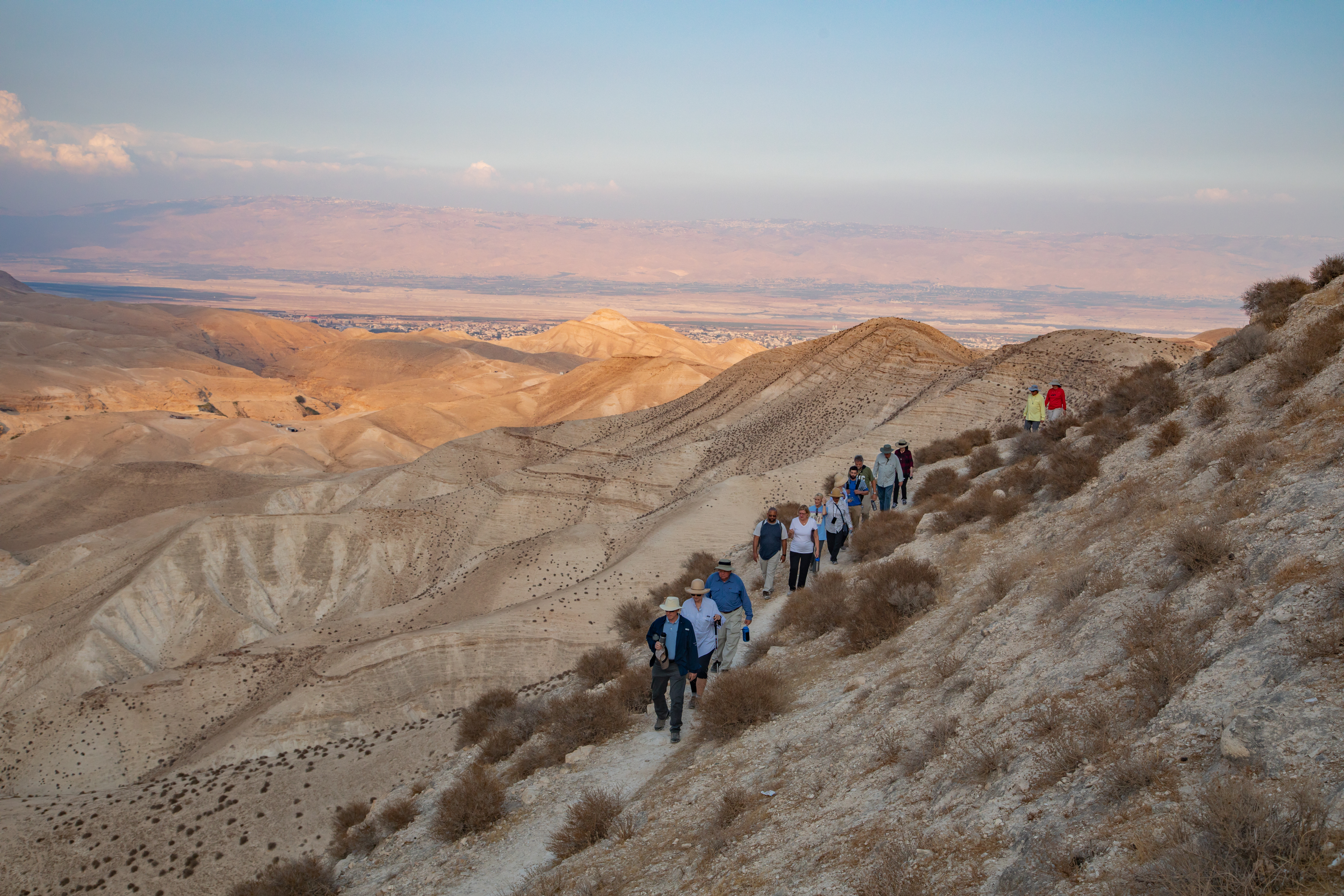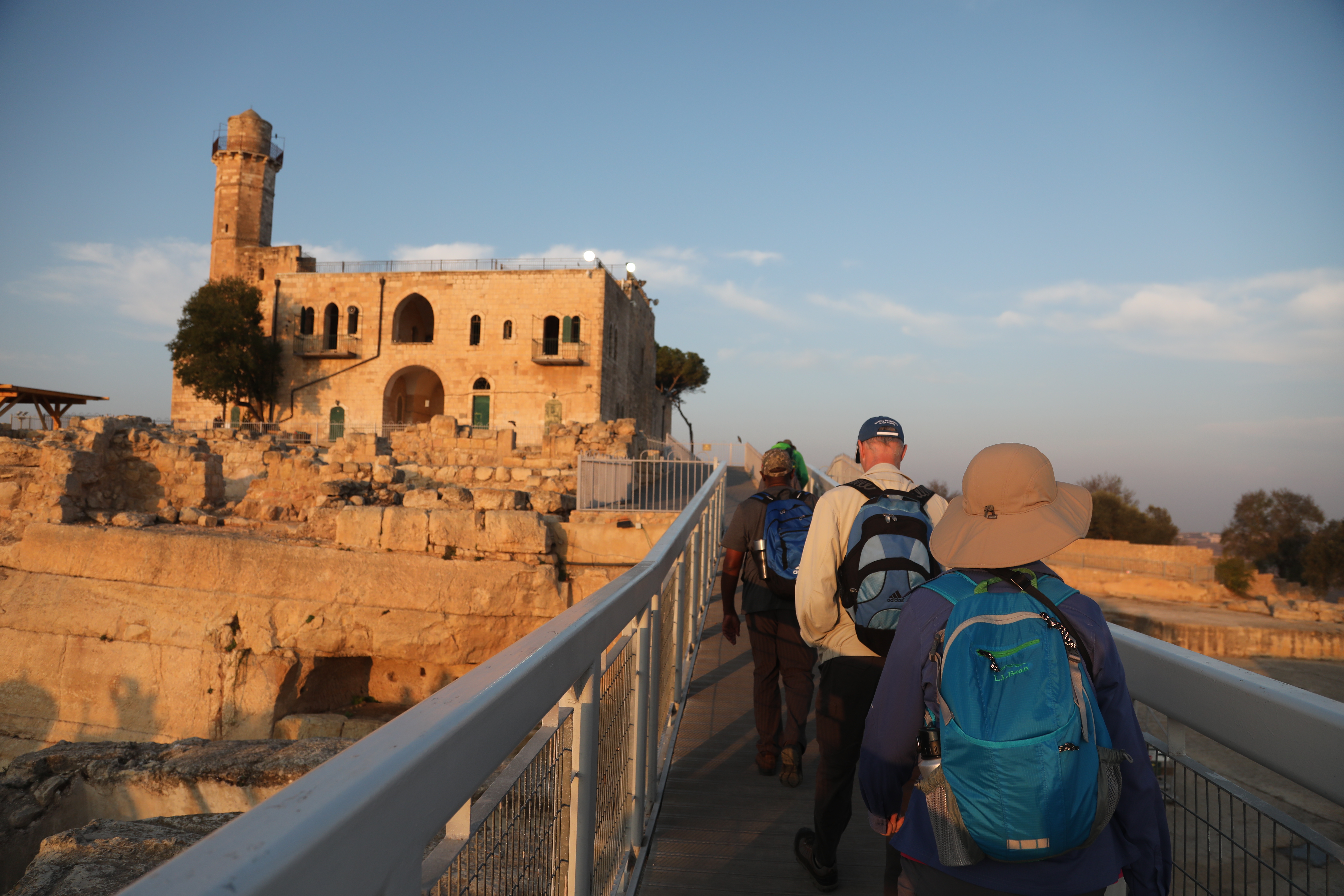
The Land of the Bible
Step into the story of Scripture with The Land of the Bible! From the hills of Judea to the shores of Galilee and across other key regions, discover how the land’s geography serves as a powerful lens for interpreting the biblical text.
THE LAND OF THE BIBLE
10 Days. Over 30 Historical and Geographical Sites.
One Unforgettable Journey.
What You Will Learn
By the end of the 10-day course, you’ll see the Bible through a whole new lens—literally and figuratively. You’ll gain a deep understanding of the geography of the Land of the Bible and how features like terrain, water sources, and weather patterns influenced ancient life, travel, agriculture, and conflict. You’ll learn how physical settings shaped the historical and theological development of both the Old and New Testaments. Most importantly, you’ll begin to use geography as a tool for interpretation—bringing new clarity and richness to the way you read Scripture. Whether you're a student, pastor, educator, or lifelong learner, this course will strengthen your biblical insight and lay a foundation for lifelong engagement with God’s Word.
What You Will Do
In The Land of the Bible, you won’t just learn about Scripture—you’ll step into it. Over the course of 10 unforgettable days, you'll engage in immersive field studies that take you from the hills of Judea to the shores of Galilee and across key regions like the Shephelah, Negev, and Jerusalem. Before your journey begins, you’ll complete thoughtfully designed pre-arrival assignments, including map work and video lectures, that lay a strong foundation for what’s to come. Once on-site, you’ll explore archaeological landmarks, hike through biblical landscapes, and experience the land that shaped the stories of the Bible. Each day invites you to reflect, connect, and discover how geography breathes life into the biblical narrative. This course is academically rich, physically active, and spiritually meaningful—crafted to be a truly transformative experience.
When It Is Offered?
21-30 May 2026
Registration Deadline for May 2026: 10 February 2026
How Much Does It Cost?
|
Course with Campus Accommodations |
$2,995 |
|
Course with Multiple Occupancy Hotel Room |
$3,495 |
|
Course with Single Occupancy Hotel Room |
$4,395 |
Click here to learn more about course cost
Ready to Apply?
Follow the link below to submit your application to JUC.
Click here to apply!The Details
Sample Itinerary*
This is an example daily itinerary for The Land of the Bible course:
Day 1: Arrival Day and Orientation Walk in Jerusalem
Day 2: Exploration of the Judean Hill Country
- Shephelah, Sataf, Beth Shemesh, Maresha, Azekah, Lachish
Day 3: Journey through the Negev and Visit to the Dead Sea
- Arad, Masada, Ein Boqeq (Dead Sea), Ein Gedi, Qumran
Day 4: Travel North toward Galilee
- Jordan River, Beth Sean, Ein Harod or Jezreel, Nazareth Ridge
Day 5: Study the Sea of Galilee and Surrounding Region
- Capernaum, Magdala, Bania/Caesarea Phillipi, Dan
Day 6: Examine the Coastal Plain
- Arbel Megiddo, Mt. Carmel, Caesarea Maritima
Day 7: Focus on Old Testament and New Testament Jerusalem
Day 8: Survey of Jerusalem's Historical Approaches
- Mt. Scopus, Mt. of Olives (7 arches, and Church of all Nations), Herodium Bethlehem
Day 9: Exploration of the Benjamin and Ephraim Tribal Regions
- Nebi Samuel, Shiloh, Jericho, Wadi Qelt
Day 10: Departure
*All itineraries are subject to change due to logistical
reasons or the preference of the instructor or group leader.
Your final program calendar will be presented to you upon arrival.
Short-Term Studies Program Faculty

Paul Wright, Ph.D.
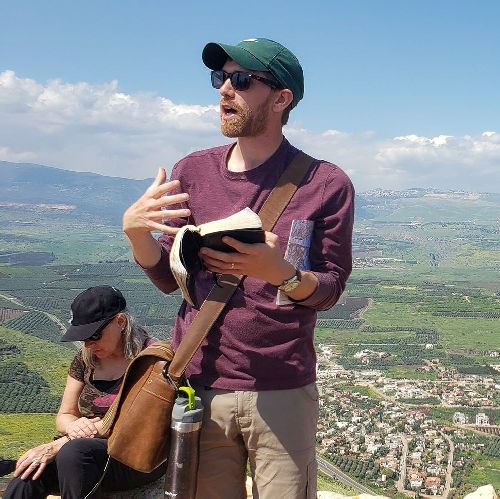
Spencer Elliott, M.A.

Elaine Phillips, Ph.D.

Perry Phillips, Ph.D.

John (Jack) Beck, Ph.D.
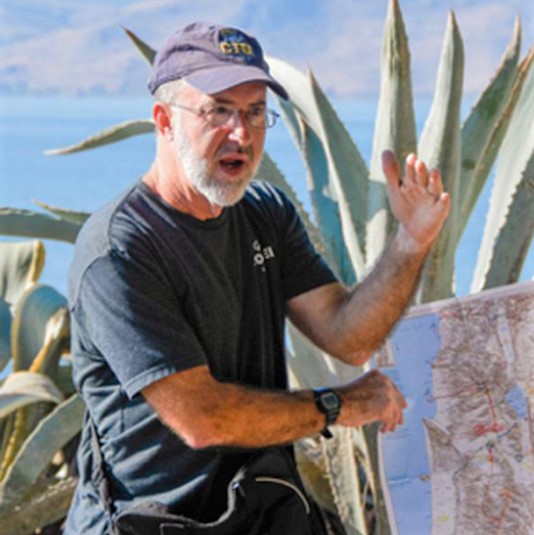
Bryan Beyer, Ph.D.

Aubrey Taylor McClain, Ph.D.

John Monson, Ph.D.

Cynthia Parker, Ph.D.

Rebecca Pettit, M.A.

Carl Rasmussen, Ph.D.

Brian Schultz, Ph.D.
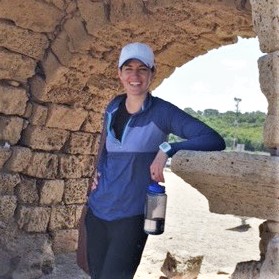
Emily Thomassen, M.A.

Chandler Collins, M.A.
Important Information
JUC offers both on- and off-campus housing for our short-term students on nights when they will stay in Jerusalem. We also arrange accommodations with hotels when the class is traveling for field studies. The hotels furnish buffet-style breakfasts and dinners. JUC students are provided with lunches by JUC whether in Jerusalem or on field studies.
Jerusalem Off-Campus Housing
Students can choose hotel housing rather than JUC campus housing for an increased housing fee. While JUC cannot guarantee that students will stay at any particular place, each hotel we contract with is well-rated and in or adjacent to the Old City of Jerusalem.
Jerusalem On-Campus Housing
Students who opt to spend nights in Jerusalem on campus will stay in dormitory-style housing, with 2-6 persons (or sometimes more) to a room. The campus has limited housing for couples with no double beds available. According to season and demand, private rooms for couples on campus may be available. Shared bathroom facilities are a short walk away from each room, sometimes across a courtyard and up or down a flight of stairs.
JUC’s program is academically and physically rigorous, including up to twelve hour days in the field or longer. The field studies involve hours of walking, standing, and several hikes (although some are optional). There are usually opportunities to sit throughout the day and plenty of time on the bus. However, students should expect an intensely physical program and plan to sweat.
Everyone traveling to Israel must have a passport that expires at least six months after they plan to exit the country at the end of their program.
Short-term students who travel from countries that have normal relations with Israel will be issued a three-month tourist visa upon arrival. Students from the United States, Canada, and most European countries fall under this category. Students who come from countries that do not have normal relations with Israel will need to make prior visa arrangements before entering the country.
Read more about obtaining tourist visas here.
Students from countries who do not have a regular relationship with Israel may need additional security or immigration approval to study in Israel. Students from such countries may be responsible to apply for a visa at their nearest Israeli Consulate or Embassy, or JUC may need to apply on their behalf at the Ministry of Interior in Jerusalem. Visa decisions are entirely at the discretion of the Ministry of Interior, so JUC cannot guarantee that you will be able to obtain a visa successfully. Please contact us if you are from a country that does not have a regular relationship with Israel and have questions about this process.
Please note: if you plan to participate in the Jordan Extension and you are required to secure an entry visa into Israel prior to the start of the program, you MUST request and be granted a visa allowing multiple entries into Israel.
A suggested packing list for JUC students is available in our student manuals. For long-term students who will be at JUC for a semester or more, here is a list of what to pack. For short-term students who will be at JUC for a few weeks, here is a list of what to pack.
We take the safety of our students with the utmost seriousness and have a proven track record of operating for over 60 years in the Holy Land. Click here for detailed information about how JUC handles local issues related to safety and prepares students to do the same.
Contact Us
Send us a note and we'll be in touch.
